Six brewing techniques that coffee beginners need to know to improve coffee flavor
Professional coffee knowledge exchange more coffee bean information please follow the coffee workshop (Wechat official account cafe_style)
A cup of coffee is a refreshing and necessary work partner for many people every day. Whether they are workers or socialites, many young people like to have a cup of iced American coffee and an iced latte, which not only brings a trace of clarity to the mind, but also does not forget to leave a little fantasy of "taste of life" to themselves. Now more and more people like to make their own coffee at home, which is fresher than convenience store coffee and more economical than well-known coffee shops.
Today, the editor has sorted out six tips that can improve the flavor of coffee. If you love coffee, learn it!
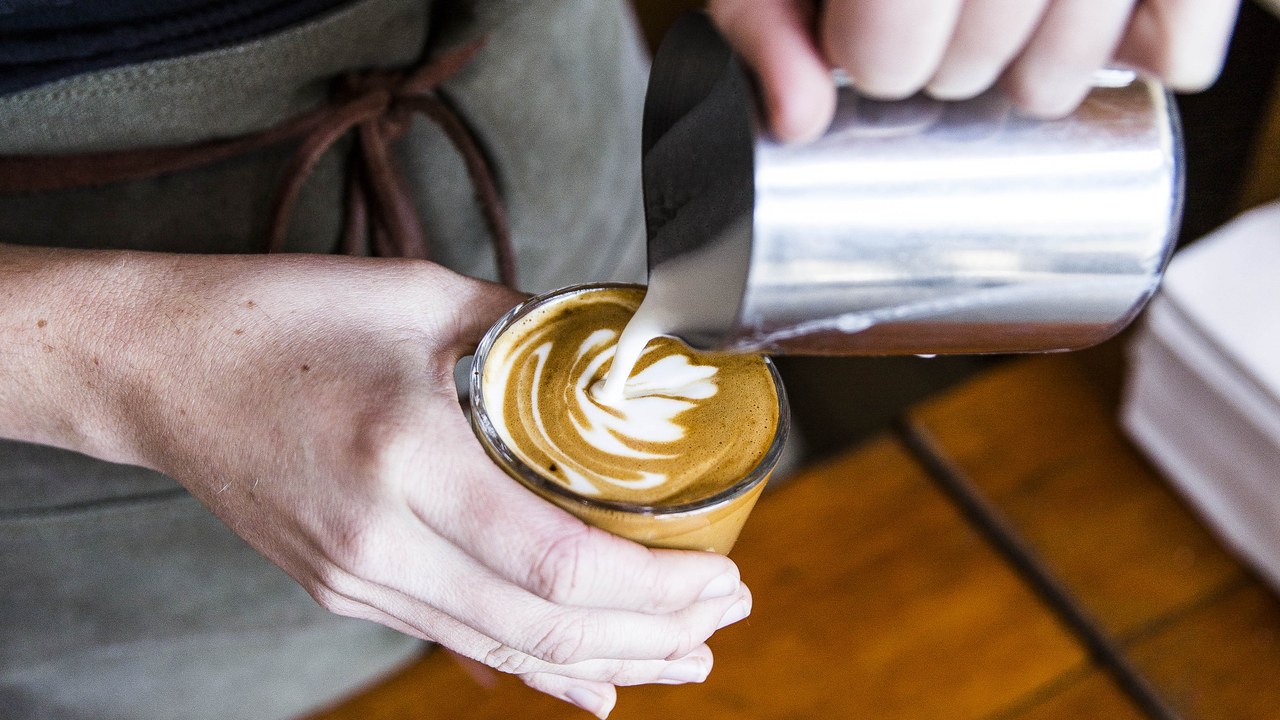
First, preheat the mug
If you are a fan of hand-held coffee, then "temperature" will be the key. Before pouring hot water into the ground coffee powder, pour some hot water into the mug. In this way, while brewing coffee, hot water will help you preheat the cup. The inlet temperature of 60-70 ℃ can best stimulate the aroma of coffee without causing discomfort, and the temperature and flavor of coffee can last longer.
Second, coffee is not brewed.
Make coffee as soon as the hot water boils? In fact, 85-92 degrees is the most suitable temperature for brewing coffee. If the water temperature is too low, it will taste sour. On the contrary, if the temperature is too high, it will be bitter, because the water with higher temperature will have more coffee powder extract. Although it is generally believed that the more the extract, the stronger the flavor, but in fact, it is not the best taste, and there may be miscellaneous flavors dissolved into it.
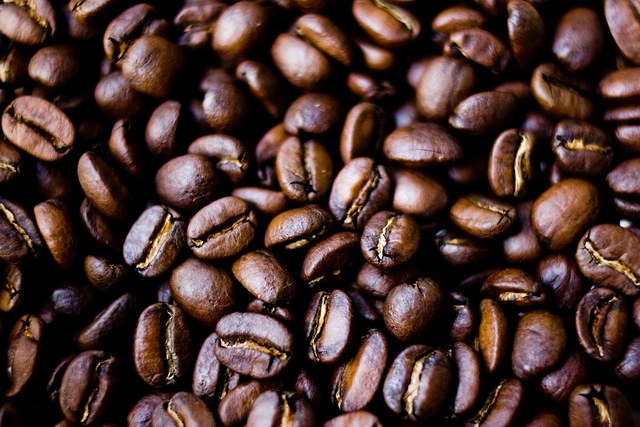
Don't be stingy with coffee beans
Don't be stingy with your treasured coffee beans, because the flavor of coffee beans will dissipate over time. Don't think about choosing an auspicious day of the zodiac, taking a bath and burning incense and then devoutly tasting it. The best attitude towards coffee beans is to drink them while they are fresh. At best, you can use a bag with an one-way exhaust valve to hold coffee beans, which can extend the flavor of coffee a lot.
The golden ratio of coffee beans to water for general use is 1:15
The ratio of coffee beans to water for general use is 1:15, which is also suitable for beginners. However, the question of taste is more subjective, and I think it is the best for nature. The older saying is that the best powder-to-water ratio is 1:10, that is, 10 grams of coffee powder with 100ml water, the coffee extracted from the best taste, but that is usually only suitable for the old very deep-roasted coffee beans.
Generally speaking, the lighter roasted coffee beans retain more flavor substances, so they are suitable for more water; and vice versa, the deeper the roasted coffee beans, the fewer flavor substances that can be extracted and tasted, so it is not suitable to brew too much water. Some veterans will use special techniques to make the taste more layered, such as brewing strong coffee liquid with less water, and then adding water to dilute it to a suitable concentration.
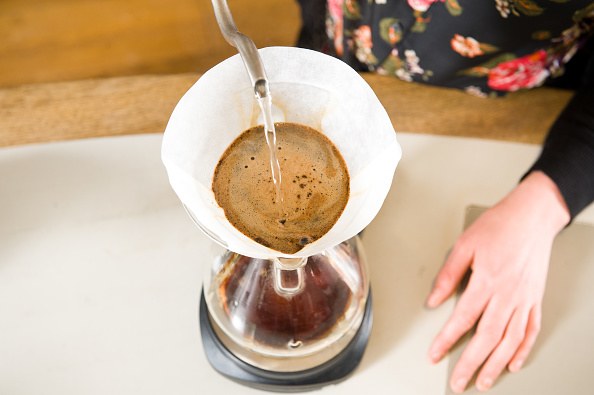
Fifth, wet filter paper
Whether it is the classic drip coffee machine or the increasingly popular hand-held coffee, you should first wet the filtering utensils. Because these filters, whether paper or plastic, metal, must have their own taste, a little water first can remove some of the smell, and can make the filter paper and funnel more close without space.
Use trace amounts of mineral water to make coffee
The taste of coffee brewed by different water will be different, and everything depends on personal preference. Many people will think that there are too many impurities in tap water, which will affect the taste of coffee, so they switch to RO reverse osmosis water, but because the reverse osmosis water is too clean to extract the essence of coffee, the coffee taste is relatively poor; it uses trace mineral water to brew coffee, but tastes better, and some people will use mineral water to soak it.
There are some water filters on the market, using filtered water to make coffee, the taste is also very good, you might as well try it. But I still want to remind you that you still have to make a judgment according to how you drink.
In fact, in addition to the inherent conditions of coffee beans, the flavor of a cup of coffee mainly depends on the extraction rate, extracting the good and like flavor, and leaving the unpleasant ones in the coffee grounds.
We can simply divide the extraction rate into high, medium and low extraction rates. Low extraction refers to the extraction of only the chemical molecules that are most easily extracted, such as acid and various aromas; medium extraction will extract sweetness again, including the smell of caramel, cream, chocolate, toffee, etc.; high extraction will further extract the bitter taste of tobacco, tar and so on. Most people like the coffee flavor with medium and low extraction degree, but not the bitter taste with high extraction degree. But if the extraction is too low, it will become as dull as a plain meal. If you don't believe it, you can throw the whole unground coffee bean into a pot and boil it to see what it tastes like.
Finally, let's sum up a little bit. If you encounter the following common questions for beginners, what can you do to make a cup of coffee taste better?
1. If the coffee tastes obviously bitter and even fuel-consuming and stays for a long time, it means that the extraction is too much. At this time, the degree of grinding of the coffee can be moderately reduced (the particles become thicker) or the water temperature can be lowered to reduce the degree of extraction.
two。 If the coffee tastes astringent, the grass taste is heavy, the flavor is not obvious, or the taste is too light, it means that the water temperature is too low or the grinding degree is too coarse. At this time, you can appropriately increase the water temperature or grind the powder more finely to improve the extraction degree and increase the flavor.
3. If the coffee beans look dark or even oily, the coffee tastes bitter and scorched, indicating that the coffee belongs to deep roasting. The coffee beans are fluffy and loosely structured, and the water molecules are easy to extract the chemical molecules from them. At this time, the water temperature can be lowered and the extraction degree can be reduced. Another method is to reduce the grinding degree (particle thickening) so that the total contact area between the water and the coffee surface is reduced. It can also reduce the degree of extraction.
4. Shallow roasted coffee beans that look cinnamon (or slightly darker), if they taste astringent, fishy and plain, indicating insufficient extraction, you can raise the water temperature a little higher or increase the grinding degree (finer particles) to increase the extraction rate.
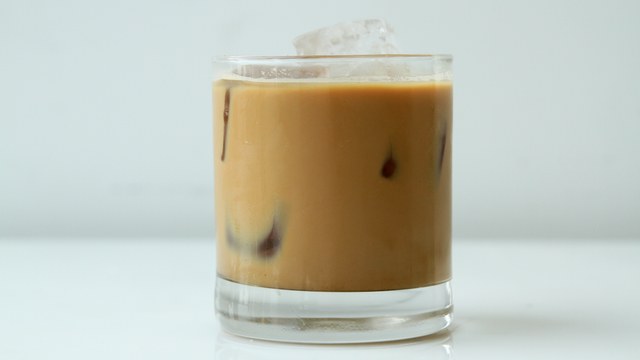
In short, beginners must remember: brewing coffee is not to extract all the ingredients contained in coffee beans. Short time, low temperature, large particles will be relatively tasteless; but long time, high temperature, small particles, it is easy to produce miscellaneous taste, astringent and other uncomfortable feelings. What we want to drink coffee is to like more flavor and less dislike taste. The secret of this can only be figured out through your own practice.
END
Important Notice :
前街咖啡 FrontStreet Coffee has moved to new addredd:
FrontStreet Coffee Address: 315,Donghua East Road,GuangZhou
Tel:020 38364473
- Prev
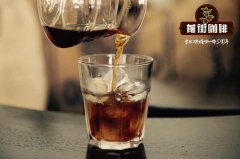
The method of making iced coffee introduces how to make iced coffee at home? What kind of iced coffee do you have?
Professional coffee knowledge exchange more information about coffee beans Please follow the coffee workshop (Wechat official account cafe_style) there are many ways to make iced coffee. From the more complicated ice droplets, the most instant iced coffee by hand, and the cold bubble method, which is easy to make and becomes the mainstream. There are many names for Cold Brew, cold-brewed coffee, cold-extracted coffee, ice-brewed coffee and so on.
- Next
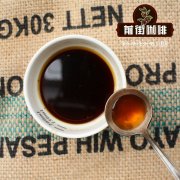
Coffee producing areas what are the coffee producing areas in China?
Professional coffee knowledge exchange more coffee bean information Please pay attention to the coffee workshop (Wechat official account cafe_style) with the equator as the center, in the tropics and subtropics between latitudes of about 25 degrees north and south, it is the most suitable area for growing coffee. However, good forests can not be cultivated anywhere in the region. The three major coffee growing areas in this section are as follows:
Related
- Beginners will see the "Coffee pull flower" guide!
- What is the difference between ice blog purified milk and ordinary milk coffee?
- Why is the Philippines the largest producer of crops in Liberia?
- For coffee extraction, should the fine powder be retained?
- How does extracted espresso fill pressed powder? How much strength does it take to press the powder?
- How to make jasmine cold extract coffee? Is the jasmine + latte good?
- Will this little toy really make the coffee taste better? How does Lily Drip affect coffee extraction?
- Will the action of slapping the filter cup also affect coffee extraction?
- What's the difference between powder-to-water ratio and powder-to-liquid ratio?
- What is the Ethiopian local species? What does it have to do with Heirloom native species?

